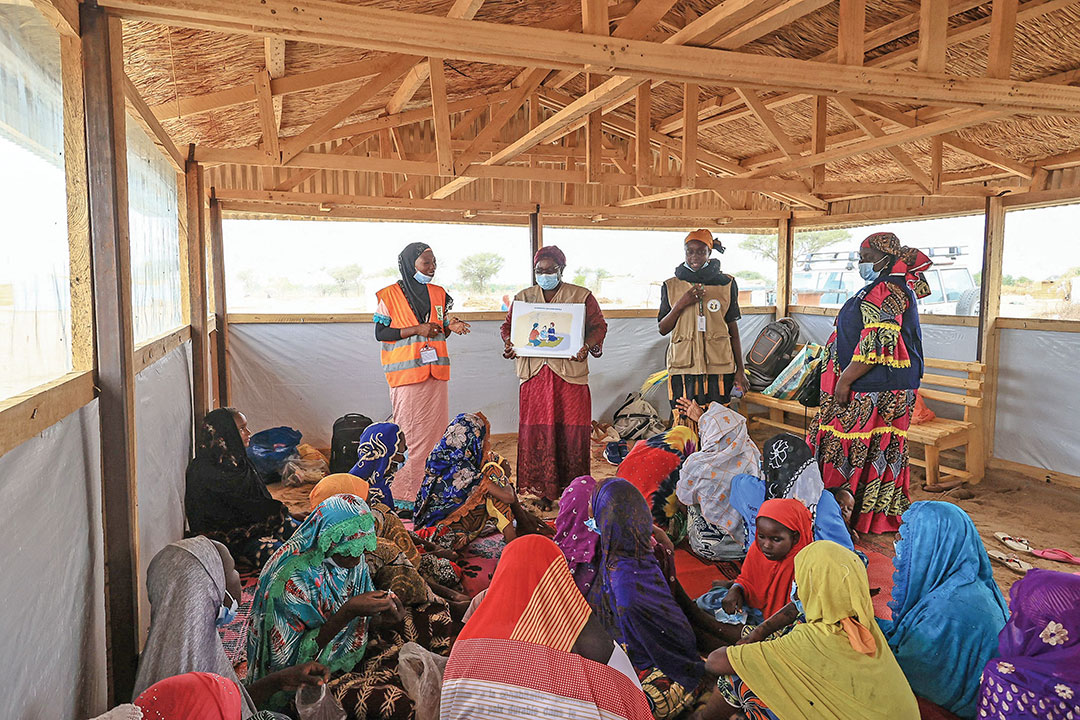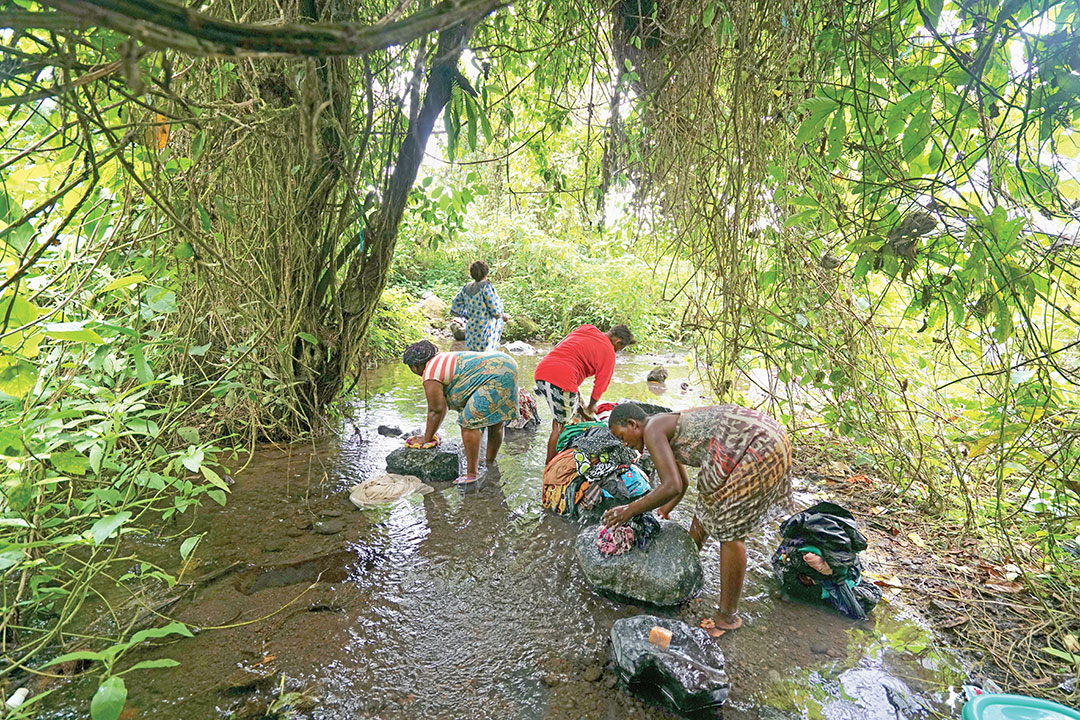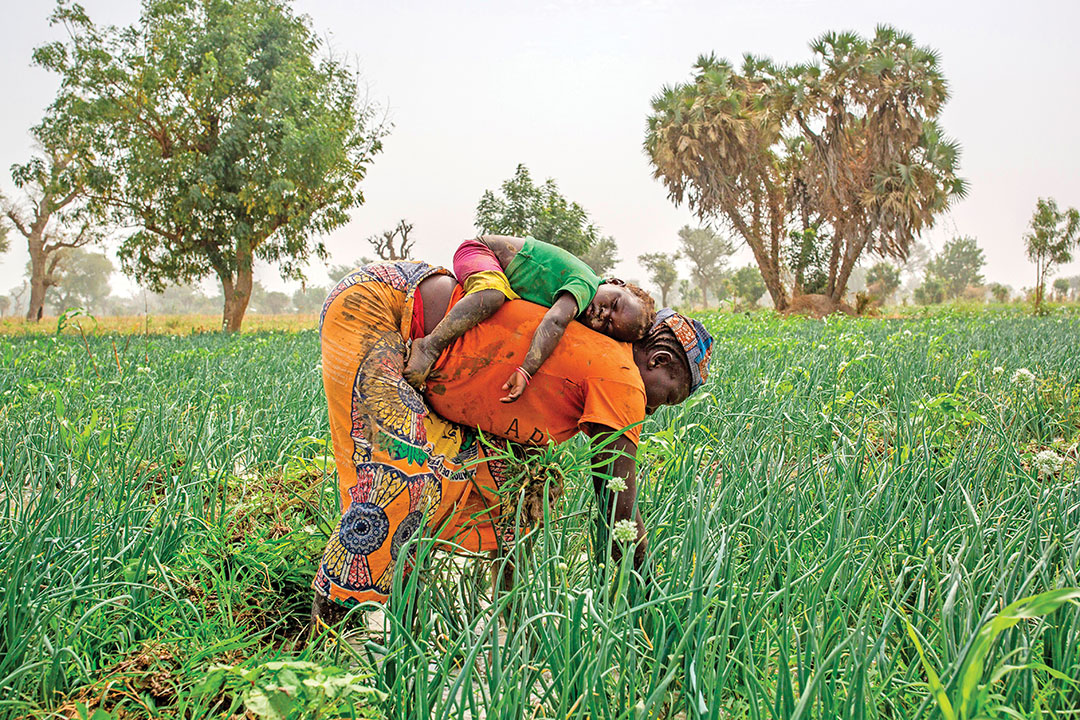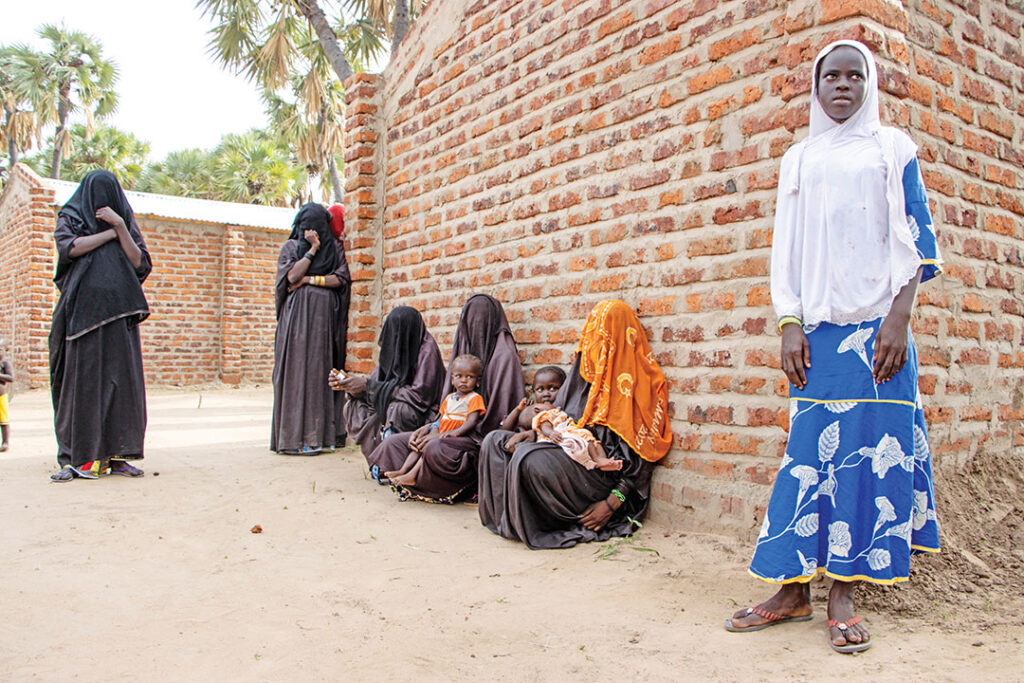ADF STAFF | photos by Getty Images
About 100 marauders stormed the Cameroonian town of Mozogo at 1:30 a.m. on January 8, 2021. From the way they dressed and spoke, it was obvious that they were Boko Haram extremists.
They broke into homes and looted them. They shot at fleeing townspeople, who ran into nearby woods. A suicide bomber caught up with some of them and detonated a rigged vest. Twelve people died in the explosion, including eight children. Three more people were injured.
The suicide bomber was a woman. This is not unusual; the Institute for Security Studies says that in some parts of Cameroon, as many as 45% of former Boko Haram members are female.
The use of women as Boko Haram suicide bombers dates to June 2014, when a middle-aged woman riding a motorcycle approached the barracks in Gombe, Nigeria. While being searched, she detonated explosives strapped on her body, killing herself and a Soldier.
“With this act, a new chapter in the destructive history of Boko Haram began: the group joined the ranks of terrorist groups around the world that have incorporated women into their organizational profiles,” researchers Mia Bloom and Hilary Matfess wrote in their study, “Women as Symbols and Swords in Boko Haram’s Terror.”

The Boko Haram conflict, which started in 2009 in northeast Nigeria, has killed more than 35,000 people and displaced 2 million across Cameroon, Chad, Niger and Nigeria.
Boko Haram and the Islamic State West Africa Province have focused attacks on the Far North Region of Cameroon. The country also is dealing with armed separatist groups seeking independence for the country’s minority English-speaking regions.
Several reasons are frequently cited for why women, historically oppressed in many parts of Africa, would join forces with terrorists. Bloom and Matfess say that revenge and retribution can play a critical role in “galvanizing female participation,” noting that there is a prevalence of widows among female militants.
Studies have linked economic problems as incentives for men and women to join extremists out of sheer desperation. Some researchers say that women might join extremists of their own free will simply because of cultural and religious ties. Others say that is not the case. One thing everyone agrees on: Women need more help in breaking the cycle of terrorism, and as civilians, they need to become more involved in helping deradicalize extremists.
Too often, counterterror and counterradicalization efforts focus solely on the men who make up the majority of the fighters. They overlook the role women can play in persuading these men to lay down arms and rallying their communities against extremism.
“Boko Haram members still have wives back in their villages and they come eat here at night,” a resident near Diffa, Niger, told the Global Center on Cooperative Security. “Nobody dares denounce them. If you do, they will kill you. They are still enmeshed in our society. The politics of denouncing them doesn’t work unless the women denounce. You can’t denounce a husband, a son or a brother. This war is complicated because of the people on their side.”

OVERLOOKED ASSETS
In their study, “Peacebuilding and Women Employment in Boko Haram Affected Countries,” Eugenie Rose Fontep and Armand Mboutchouang Kountchou say that women need to become more involved in trying to bring Boko Haram to the negotiating table in Cameroon.
“It is only by kidnappings and tortures that girls are used by the Boko Haram group as fighters, some of whom become suicide bombers,” they wrote. “Indeed, if it was not by force and malicious persuasions, women may be playing a central role in the peacebuilding process since societies and communities where women enjoy a relatively higher status have greater prospects for successful peacebuilding.”
Women want a voice in bringing peace to their country — they make up more than half of Cameroon’s population — and are protesting what they say is underrepresentation in the country’s efforts. They also want to assist in the disarmament, demobilization and reintegration, or DDR, of former insurgents.
A group calling itself Women’s Negotiations for Peace in Cameroon says it plans to meet with fighters and government troops to find a path to peace.
Sonkeng Rachel, one of the organizers, told Voice of America that in crises, women who are regarded as having high moral standards, integrity and discipline should be given opportunities to speak. She said that women have proved that they can even be the main peace negotiators, because they provide humanitarian needs to affected populations, including wounded Soldiers and fighters. Women, she added, educate fighters and government troops on the necessity of building peace.
In a 2022 study for the Institute for Security Studies, researchers Celestin Delanga and Akinola Olojo made their case for having the women of Cameroon encourage Boko Haram members to leave the group and reintegrate with society.
“The needs of these former Boko Haram members are often understood by women in communities affected by violent extremism,” they wrote. “They also know the concerns that exist in host or receiving communities regarding reintegration processes. This knowledge can inform national and regional programming on peace processes in ways that reflect gender sensitivity and inclusiveness.”

The International Crisis Group (ICG) says that Cameroonian women already are involved in working for peace, whether men accept it or not.
“Ignoring women’s views means overlooking key constituencies and new perspectives on the conflict,” the ICG reported in March 2022. “Despite the deeply patriarchal nature of Cameroon’s society, some women command considerable influence, especially at a grassroots level and within families. Further, the different harms suffered by women require special attention from the government, separatists and international partners.”
Getting women involved in reintegration in Cameroon is all the more necessitated by the fact that so many of the surrendering or captured insurgents, an estimated 20%, are women.
The online news service HumAngle reported in November 2022 that Cameroon had announced a five-year plan aimed at reintegrating Boko Haram insurgents and former fighters into society.
“It will be based on strategies that have been employed in conflicts all over the world that try to return people who have been armed and told to go and kill, back into a society that might view them with suspicion,” HumAngle reported.
The National Committee on Disarmament, Demobilisation and Reintegration (NCDDR) said it would take “into account the needs and specific interests of women and girls associated with armed groups” in its efforts, particularly at its DDR centers.
“The implementation of this strategy on the ground would be done through training and sensitization campaigns, the increase in the engagement of women and girls in the DDR process, their protection against stigmatisation and violence based on their gender,” said Jean Claude Obam of the committee, HumAngle reported.
As of the end of 2022, Cameroon said there were about 770 female fighters and associates in its DDR centers nationwide.
DOUBLE STANDARD
There is a double standard in reintegrating women into society, Delanga and Olojo say.
“On returning home, some are victimised by their families or communities,” they wrote. “They are stigmatised when they try to remarry and, in some cases, are rejected outright. According to the [International Organization for Migration], in Cameroon, victimisation is higher among female former Boko Haram members than males. If left unaddressed, this can hinder reintegration efforts.”
Delanga and Olojo make these suggestions for using women in Cameroon’s DDR process:
More women need to be involved in Cameroon’s NCDDR. The committee was established in 2018, but at the end of 2022, only one of 16 members was a woman. The decree that created the committee should be revised so that women can be more involved in managing the country’s DDR centers. “The enactment of these laws would gain mileage if the ministries of justice collaborated with the ministries for the promotion of women and the family, and for social affairs,” the authors wrote.
Women need to play a role in designing DDR programs for former female members of Boko Haram.
At the regional level, the Lake Chad Basin Commission should strengthen its focus on gender needs. Key points of the commission already focus on working with women, and the empowerment and inclusion of women and young people.
The Lake Chad Basin Commission also needs to focus on lessons learned and best practices in reintegration. Committee meetings should highlight themes that prioritize women’s needs.
“Involving women in Cameroon’s disarmament, demobilisation and reintegration process would deliver more effective conflict resolution and peacebuilding,” the authors said. “And by dealing with gender-related concerns, problems of discrimination can also be addressed.”
Promoting Women in the Peace Process
Political scientist Angela Ajodo-Adebanjoko published a report in the African Journal on Terrorism titled “Women’s Role in Countering Violent Extremism in North East Nigeria” in 2021. She listed these steps to promote women’s participation in countering violent extremism.
- Make legal reforms. Women first have to be recognized, included and protected as full and equal citizens before the law.
- The counterterrorism community needs to recognize that gender is a central issue, not a marginal one.
- Gender-sensitive indicators should include early warning systems, intelligence gathering and the strengthening
of prevention strategies relating to violence against women. - Women must be present at the solution table. They need to help plan any counterterrorism strategy because of their ability to offer a different, but vital, perspective.
- Negotiators must address the issues underlying women’s membership in Boko Haram. It is crucial that the international community engage with women in preventing violent extremism and focus on the gender-related reasons why women become extremists.
- Women’s presence among counterterrorism professionals, including in the military, must be increased. Institutions need to strengthen their efforts to recruit and retain women, including in operational roles, and ensure that obstacles to their career advancement are removed.
- Women must be empowered within the civil and security sectors, all the way to national levels.
- Women should be trained on advocacy skills that take advantage of their positions and localities.
- A gender dimension should be included in efforts to promote intercultural and interreligious dialogues.

